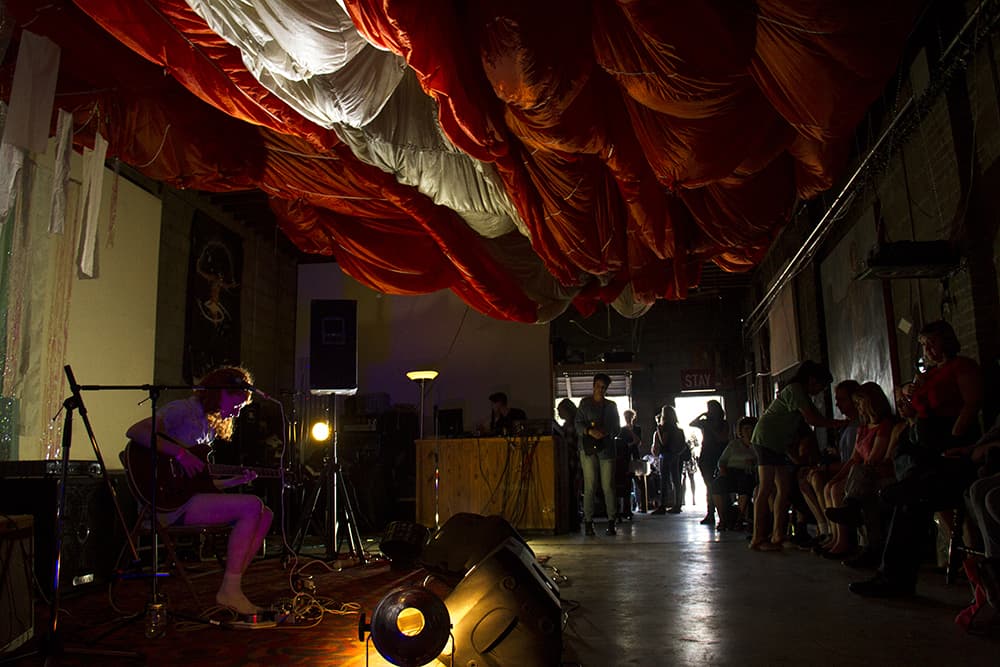
Denver wants to offer an amnesty of sorts to the warehouses that serve as homes and studios to the city's most marginalized artists. For it to work, artists and landlords have to trust the city, and the city has to show itself worthy of that trust.
"It's hard because people don't trust us," Community Planning and Development Executive Director Brad Buchanan told a council committee in June. "... We are getting to yes for real. We are committed to making a difference."
There will be an hour-long public hearing on Monday for people to tell Denver City Council what they think about the plan. This is the first reading of an ordinance to create a conditional certificate of occupancy for these artists' live-work spaces and other unpermitted residential buildings, and the proposal could be amended before final approval by City Council.
The issue of people living in unpermitted spaces came to the forefront after the Ghost Ship fire in Oakland. Spaces that had previously received a pass from fire and building code inspectors came under new scrutiny. Five people living in Rhinoceropolis and Glob, industrial spaces at 3551 and 3553 Brighton Blvd., were evicted on a freezing night because the buildings didn't have sprinklers or smoke detectors and had other fire hazards, according to the city.
The surprise inspections and swift consequences landed hard in a city and a neighborhood where artists are already finding themselves priced out and where industrial blocks are falling to shiny new development. But also, no one wants to die in a fire.
The city's proposal, believed to be the first of its kind in the country, would allow the owners and tenants of certain types of buildings to come forward during a two-year period and bring their property into compliance without punitive fees and on an extended timeline. Most significantly, if there isn't an immediate life-safety hazard on site, people could keep living in the space during the renovation.
Eligible spaces include such things as performance spaces with an occupancy of 300 people or less (but not restaurants or bars), residential living spaces with two stories or less with up to 16 units, offices, galleries, showrooms and retail spaces.
"This is a giant leap in the right direction and addresses a lot of concerns," said Jamie Licko, president of the RiNo Art District.
People in the DIY art community have lived in fear of raids and "getting kicked out at 2 in the morning," she said, and they've been hesitant to come forward because they don't know where they fit in the code, how much it will cost to legalize their status or whether it will even be possible.
The program would give waive double permit fees that usually apply to unpermitted work that's getting retroactive approval and would allow for less orthodox solutions to save money.
Building owners could come in between July 21, 2017, and July 19, 2019, but the program only applies to pre-existing work. You couldn't do unpermitted construction later this year and then seek retroactive approval next year.
"We don't want to incentivize people to not pull permits," Buchanan said.
However, the city could still make people move out if there are safety hazards, and some of the listed hazards are probably present in some DIY spaces.
Those include:
- Exterior damage causing inadequate protection from the elements
- Lack of sufficient exits
- Non-functional plumbing, electrical or heating systems
- Storing hazardous materials
- Lack of fire protection systems
Amplify Arts, an organization working on issues around DIY spaces from an artist and tenant perspective, called the ordinance a step in the right direction but also "deeply flawed" in a statement published in Westword.
The program requires the cooperation of the property owner, and there are no protections against eviction for tenants who come forward with concerns about the safety of their living spaces.
From Amplify's statement:
As the bill stands now, we see the program as nothing but a public relations move and it contains several loopholes that could further endanger our city’s creative community and anyone who is in a tenant/landlord relationship. The majority of the people who are being affected by the City’s surprise inspections and by rising property values are renters. The proposed Safe Occupancy Program does not offer any solutions for holding negligent building owners accountable for unsafe buildings; instead, it punishes tenants, asking them to bear the brunt of the enormous cost of bringing their spaces up to code, while also risking eviction. This loophole or oversight makes it less likely for tenants to enroll in the program to ensure the spaces they work in are safe.
Amplify Arts asks that all tenants and spaces that faced surprise inspections since December 2016 be allowed to participate, that tenants whose landlords want to evict them after they come forward to participate get a 90-day window during which they can stay in their buildings and that key terms in the ordinance be better defined.
Update: The article has been updated to include the statement from Amplify Arts.












